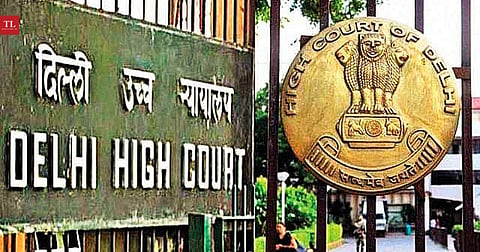

The high court ordered the Union government to release ₹50 lakh in favour of the widow of a security guard of Safdarjung Hospital who died of Covid during the pandemic.
—
LAST week, the Delhi High Court ordered the Union government to release ₹50 lakh in favour of a woman whose husband, a security guard at Safdarjung Hospital, died during the Covid pandemic.
The petitioner, Sangeeta Wahi, had approached the high court seeking two-fold relief.
Firstly, the benefit of an insurance package announced by the Union government under the 'Pradhan Mantri Garib Kalyan Package: Insurance scheme for health workers fighting Covid'.
Secondly, the benefits of the scheme announced by the Department of Health and Family Welfare, Government of National Capital Territory (NCT) for grant of ex gratia compensation of ₹1 crore to the families of employees who died of Covid-related complications while on Covid duty.
The Union government contended that the petitioner was not entitled to the insurance because the deceased husband of the petitioner was not deployed for the care of Covid patients and, therefore, she would not be entitled to the Pradhan Mantri Garib Kalyan Package.
The Union government also argued that the Safdarjung Hospital has a dedicated separate building, i.e., super-speciality building (SSB) and SARI ward of new emergency building for suspected Covid patients and a fever screening centre in the old casualty area was functioning for suspected patients.
On this count, the government contended that since the late husband of the petitioner was posted in the OPD registration counter area, he was not in direct contact of Covid patients. He was thus not covered under the scheme. The government argued.
Single-judge Justice Subramonium Prasad rejected the approach adopted by the Union government. Justice Prasad opined that the Union government could not take such a narrow approach in the matter.
He held: "The scheme was actually brought out as a measure to benefit the family members of persons who became martyrs in the line of duty while protecting thousands of persons affected by Covid pandemic.
"Taking such a narrow view actually goes against the spirit of the scheme which was meant to provide immediate relief to persons who were tackling the situation and were protecting the lives of thousands of patients."
Justice Prasad also noted that Covid spread through the air and any patient who was coming to the hospital could have been infected by the virus, whether he/she was symptomatic or not. The patients got in touch with many service providers, be it security guards, nurses or paramedical staff, who might or might not have been posted in the Covid ward.
Regarding the question as to whether the late husband of the petitioner would be entitled to the scheme announced by the Department of Health and Family Welfare, Government of NCT of Delhi (GNCTD) for grant of ex gratia compensation of ₹1 crore, Justice Prasad noted that the deceased was a contractual employee, whose services were outsourced by the Safdarjung Hospital, which is a Union government hospital.
"Since the petitioner was not employed by the GNCTD, this court is not inclined to extend the benefit of the scheme announced by the government of NCT of Delhi by passing a writ," Justice Prasad held.
Nevertheless, he directed the medical superintendent of the Safdarjung Hospital to send documents of the late husband of the petitioner to the GNCTD and upon receipt of these documents, the GNCTD will have to examine the case of the late husband of the petitioner sympathetically keeping in mind the fact that the petitioner's husband had lost his life in the line of duty.